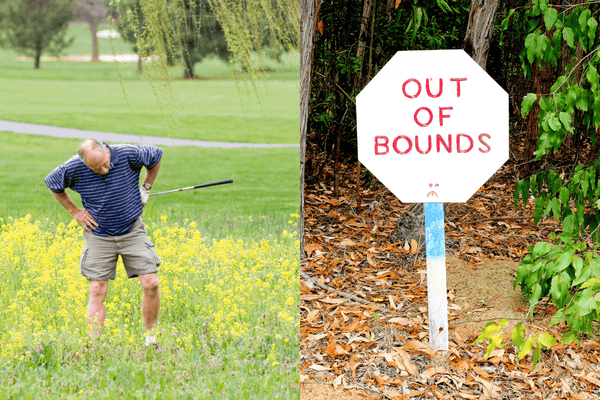Golf, once seen as one of the most tradition-bound sports, is undergoing a digital revolution. The fairways and greens of today are no longer just about clubs, balls, and scorecards. Instead, they’re increasingly dominated by sensors, algorithms, and intelligent devices designed to fine-tune performance and maximize potential.
Thanks to smart golf equipment powered by artificial intelligence (AI), golfers now have access to tools that were once reserved for professionals with access to high-end trainers and private golf academies. From swing analysis and AI-based coaching apps to sensor-embedded clubs and real-time strategy systems, modern technology is fundamentally transforming how the game is played and practiced.
Let’s take a closer look at how AI and smart devices are reshaping the golf landscape - both on the range and on the course.
Personalized Practice Through AI: Your Virtual Golf Coach
Traditional golf instruction has long relied on in-person coaching sessions that may only happen a few times a month - if that. These sessions, while valuable, often leave players without the necessary tools to monitor progress between visits. Enter AI-powered golf tools.
How AI Is Transforming Golf Practice:
-
Customized Learning Paths: AI systems like Golfzon Leadbetter and Full Swing KIT create individualized practice plans based on your current skill level, swing mechanics, and goals. Instead of generic drills, you get targeted training sessions that evolve with you.
-
Swing Pattern Recognition: These systems recognize patterns in your swing over time. Whether you're slicing due to early wrist release or struggling with consistency in your takeaway, AI can detect minute issues that even trained eyes might miss.
-
Accessible Anytime, Anywhere: Through mobile apps and cloud-based tools, players can access feedback and drills whether they’re at home with a simulator or at the driving range with just a smartphone and a tripod.
For beginners and mid-level players especially, this democratization of elite-level instruction is one of the most powerful developments in golf's recent history.
Real-Time Swing Analysis: From Guesswork to Precision
The days of "feel-based" swing correction are giving way to data-driven precision. Smart sensors, high-speed cameras, and AI analysis tools are now making it possible for golfers to dissect every millisecond of their swing in real time.
Tools at the Forefront:
-
Launch Monitors (e.g., TrackMan, Rapsodo, FlightScope): These use Doppler radar and optical tracking to measure ball speed, spin rate, launch angle, carry distance, and club path. They're not just for pros - compact, affordable versions now exist for everyday golfers.
-
Wearables and Smart Grips: Products like Arccos Caddie Smart Sensors attach to your clubs and record swing data every time you hit a shot. Over time, they compile statistics to reveal trends, strengths, and weaknesses.
-
Video + AI Integration: Apps like Sportsbox AI and V1 Golf combine high-definition video with AI that maps your body in 3D, offering biomechanical feedback that rivals what you’d get in a sports science lab.
Rather than guessing why a shot went left or fell short, players can now view hard data and 3D animations showing what went wrong - and exactly how to fix it.
Smarter Equipment, Smarter Play: Data-Driven On-Course Performance
AI isn’t just changing how golfers practice - it’s also revolutionizing how they perform during a round. Smart devices and apps provide caddie-like insights that inform everything from club selection to game strategy.
What’s Available:
-
GPS and Shot Tracking Systems: Arccos, Shot Scope, and Garmin devices not only tell you your distance to the pin but also track your performance by hole, club, and course conditions. Over time, they build a playing profile that helps refine course management decisions.
-
AI-Powered Caddie Apps: Arccos Caddie uses machine learning to suggest optimal clubs based on wind, elevation, past performance, and even your fatigue level. It learns your tendencies and becomes more accurate the more you play.
-
Smart Rangefinders: Devices like the Bushnell Pro XE offer slope-compensated distances, environmental readings (barometric pressure, temperature), and pin-lock vibration feedback - ensuring more confident club selection.
This integration of technology means golfers no longer have to rely solely on feel and intuition. Instead, they’re empowered with the kind of situational awareness that was once only possible with a human caddie and a deep playbook of past rounds.
At-Home Simulators: Professional Training, Now in Your Living Room
In a world where remote training and home workouts are the norm, golf simulators have surged in popularity - and for good reason.
Leading the Pack:
-
Phigolf, SkyTrak, and Garmin R10 have created relatively affordable systems that allow players to practice on thousands of real-world courses from the comfort of home.
-
Advanced Swing Feedback: These simulators often include 3D swing visualization, customizable weather conditions, and performance reports to track improvement over time.
-
Gamification: Many simulators also come with multiplayer modes, online tournaments, and goal-based training - helping maintain motivation while practicing.
These tools are particularly valuable during off-season months or for urban golfers with limited access to practice ranges.
The Future of AI in Golf: A Smarter, More Inclusive Game
Looking ahead, the future of smart golf technology is set to become even more personalized, immersive, and accessible.
On the Horizon:
-
Augmented Reality (AR) Training: Imagine wearing smart glasses on the course that overlay digital tips or reminders based on your pre-round goals.
-
Predictive Performance Modeling: Advanced AI may soon predict how a player will perform on a given hole based on fatigue, weather, and past tendencies - offering real-time adjustment advice.
-
Inclusive Tools: AI has the potential to make golf more welcoming by offering tailored coaching to new or adaptive golfers who may not fit the traditional instruction model.
Technology won’t replace the artistry and feel of the game, but it will continue to augment it - helping golfers play smarter, not just harder.
Final Thoughts: Embrace the Evolution
Golf’s digital evolution is more than a trend - it’s a paradigm shift. Whether you’re chasing a lower handicap, trying to break 90, or just looking to enjoy the game more, smart golf technology provides the tools to get you there faster and with more clarity.
The rise of AI and smart equipment is proof that you don’t need to change your swing overnight to improve - you just need better insights, better feedback, and better data.
In a sport where small changes can yield big results, that’s a game-changer.












